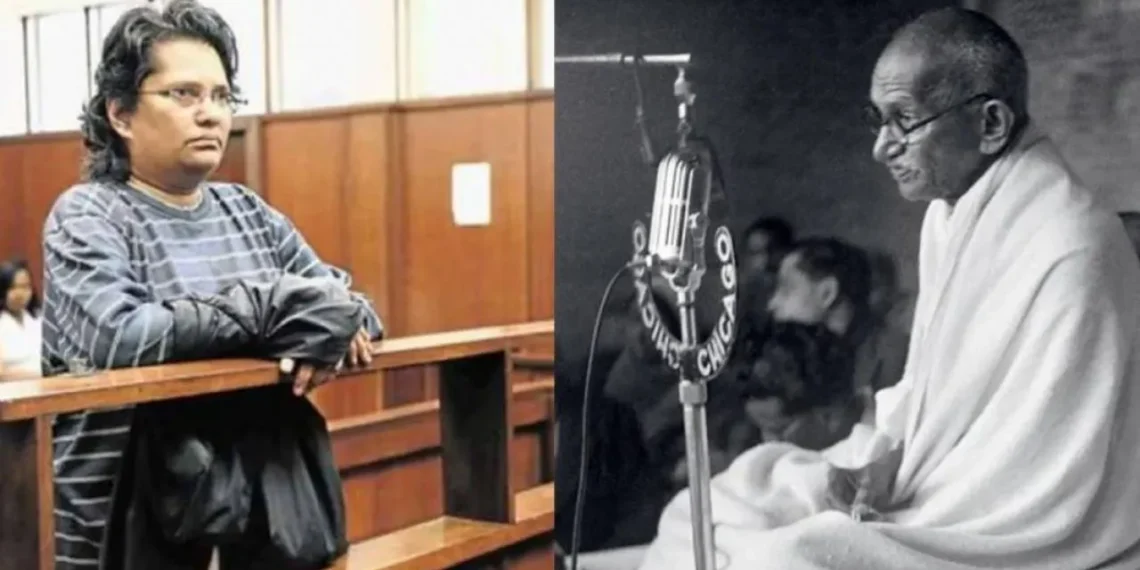A Durban court’s verdict against Gandhi’s descendant in a high-profile fraud case has triggered global debate about personal accountability and public legacy.
BY PC Bureau
Ashish Lata Ramgobin, the great-granddaughter of Mahatma Gandhi, was sentenced to seven years in prison by a South African court on charges of fraud and forgery, bringing a dramatic legal conclusion to a case that has drawn attention across India and South Africa.
The 56-year-old Ramgobin was convicted by the Durban Specialised Commercial Crime Court for defrauding businessman S.R. Maharaj, a well-known figure in Durban’s footwear industry, of 6.2 million rand (approximately ₹3.2 crore). The court found that Ramgobin had fabricated documents, including invoices and customs clearance papers, to convince Maharaj that she was importing a consignment of linen on behalf of South Africa’s NetCare hospitals—a shipment that never existed.
According to the prosecution, Ramgobin persuaded Maharaj to release funds under the pretense that she would repay the amount once the goods cleared customs. However, investigations revealed that no such consignment had been ordered, and the documents submitted were forged.
History takes a twist:
Mahatma Gandhi’s great‑granddaughter, Ashish Lata Ramgobin, has been sentenced to 7 years in prison in South Africa for orchestrating a ₹3.2 crore linen-import fraud—complete with forged documents.
A stunning fall from grace pic.twitter.com/mJHtNnL0dw
— CA Sharath Pavan (@CA_SharathPavan) June 12, 2025
The case was first registered in 2015, and Ramgobin was released on bail of 50,000 rand at the time. After years of legal proceedings, the court found her guilty and sentenced her to seven years in prison without the option of a fine. Her application for leave to appeal both the conviction and sentence was denied by the court.
 READ: Air India Crash: United in Grief, Meitei and Kuki Communities Mourn Their Daughters
READ: Air India Crash: United in Grief, Meitei and Kuki Communities Mourn Their Daughters
Ramgobin is the daughter of human rights activist Ela Gandhi, granddaughter of Mahatma Gandhi’s second son, Manilal Gandhi. She had been involved in social activism and ran the Participative Development Initiative at the International Centre for Non-Violence in Durban.
The conviction has sent shockwaves through both South Africa and India, with many expressing disbelief that a descendant of the Mahatma—widely revered as a symbol of moral integrity—could be involved in such a crime. The case has also sparked renewed conversations around legacy, accountability, and the challenges of public scrutiny faced by families of iconic leaders.
Neither Ramgobin nor her legal team offered public comment following the sentencing.












